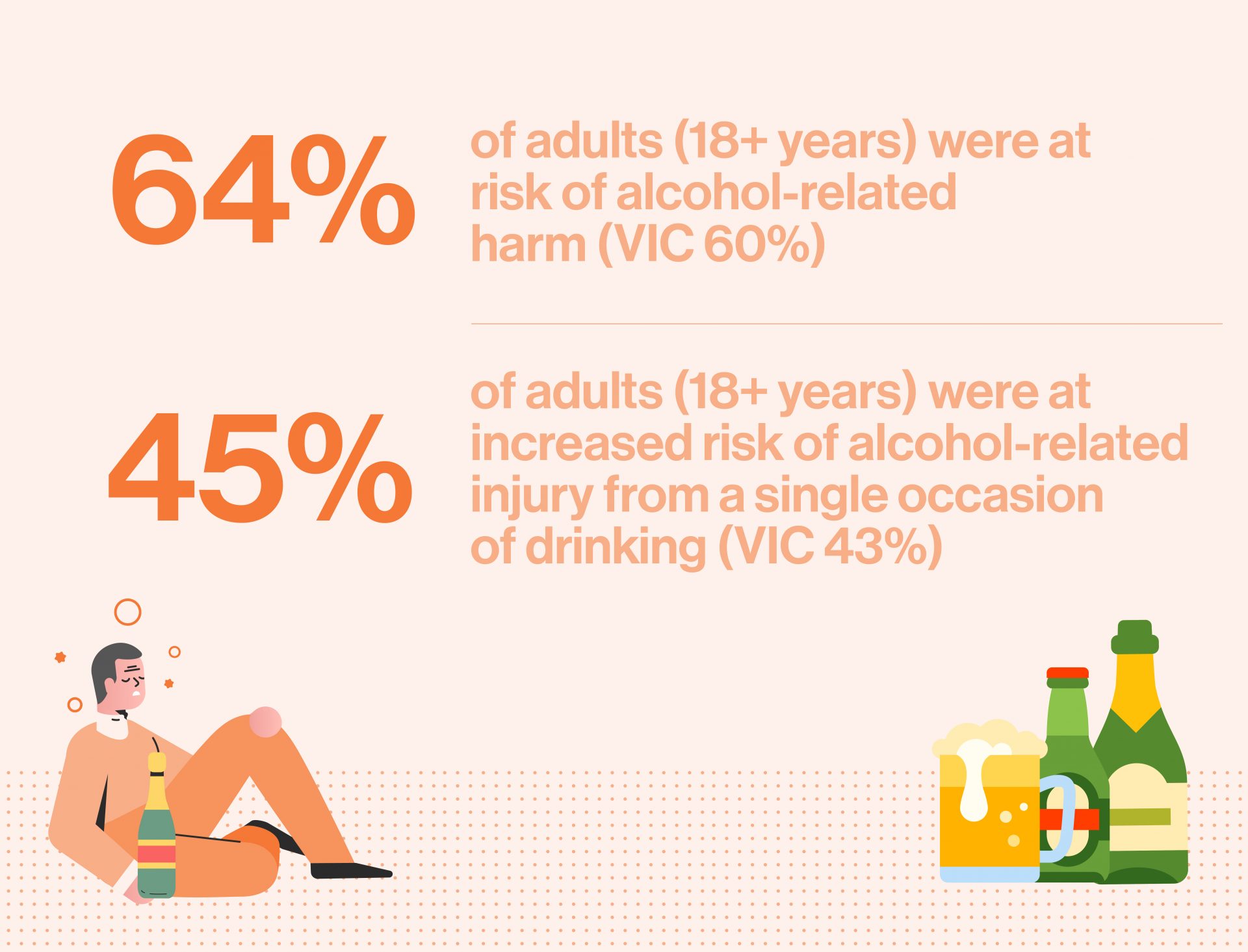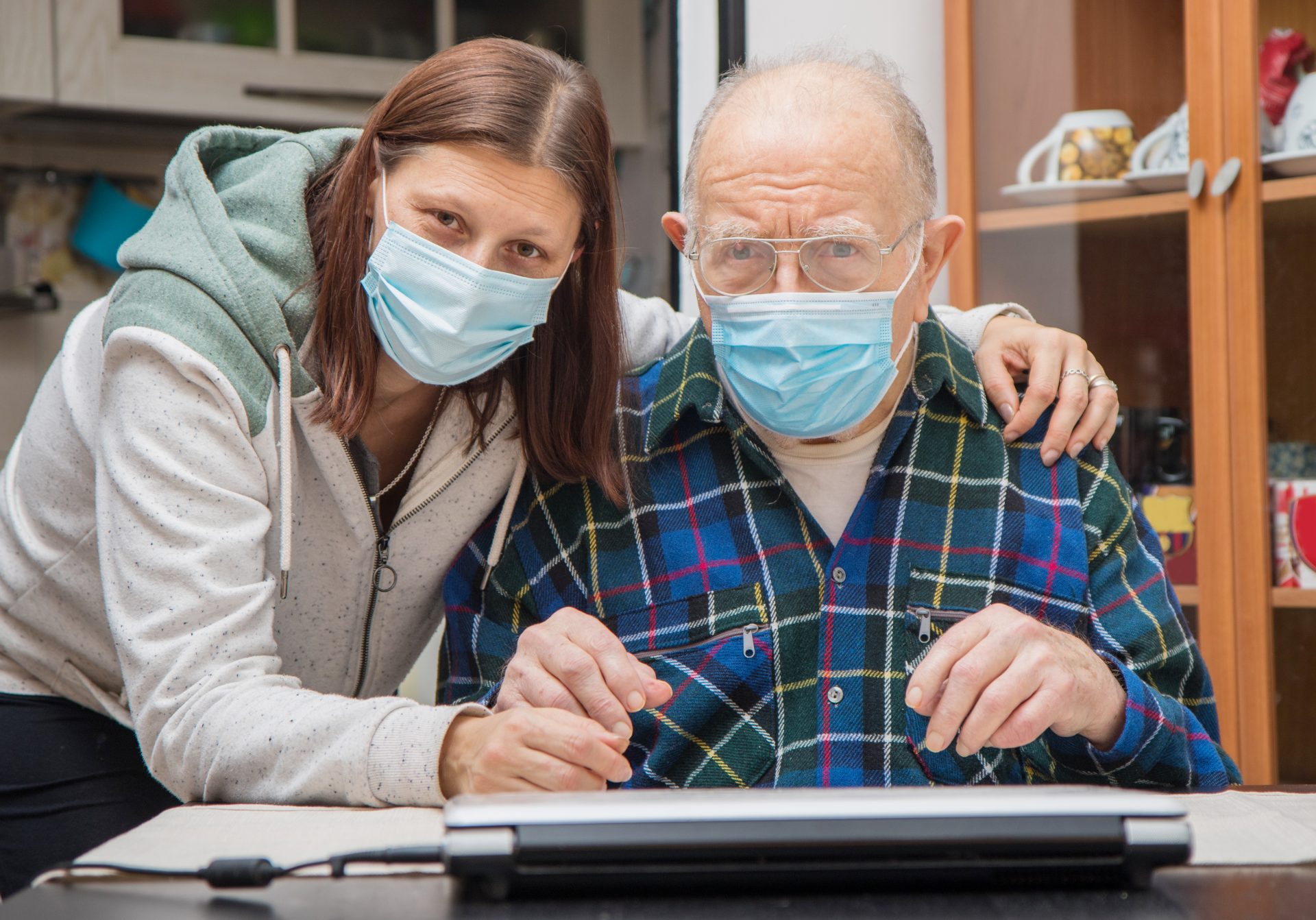Reducing barriers for alcohol and other drug support
Alcohol and other drug addiction continues to impact the south east community, with higher-than-average rates of mis-use among young people and adults who live in the local government areas of Port Phillip and Greater Dandenong
Those who present to hospital can experience barriers to further support and/or treatment, placing them at a high risk of relapse when they leave hospital.

ASSIST Drug and Alcohol Screening Tool
In 2021, ADLOW expanded to include the Alcohol, Smoking and Substance Involvement Screening Test (ASSIST)– a tool designed to help general practitioners identify people most at risk of high levels of substance use in adults.

SEMPHN, in partnership with Taskforce, has been delivering the Alcohol and Drug Liaison Outreach Worker program (ADLOW) since 2017. This is a program designed to help people who aren’t yet connected to community alcohol and drug services.
In 2021, this program expanded to include the Alcohol, Smoking and Substance Involvement Screening Test (ASSIST)– a tool designed to help general practitioners identify people most at risk of high levels of substance use in adults.
ADLOW helps people by:
- Providing short to medium term ‘bridging’ support and brief interventions
- Assisting in developing a comprehensive treatment plan
- Linking to community Alcohol and Drug services
- Working with hospital emergency departments and GP networks.
Throughout the year, the ADLOW program developed new and effective methods of service delivery to ensure services remained available during Victoria’s lockdowns. SEMPHN was able to successfully support Taskforce to establish:
- a COVID-19 Safe Plan
- a hybrid model of face-to-face and online and telehealth service delivery
Key highlights
In 2020-21 ADLOW reported:
- 61% increase in incoming referrals (345)
- 55% increase in episodes of care (527)
- 11% increase in referrals to other services (168)
Vanessa’s story
ADLOW supported Vanessa with counselling, case management and bridging support while also engaging her in other services to assist with recovery based-activities
“Thank you for being patient, and treating me with kindness; I would not have been able to engage with these services without TaskForce’s help” – Vanessa
 Vanessa (not her real name), a 33-year-old single female with limited social support, presented to hospital where she was diagnosed with severe malnutrition. Vanessa is employed part-time at a grocery store and often consumed two to three bottles of wine at home, alone, after her shift.
Vanessa (not her real name), a 33-year-old single female with limited social support, presented to hospital where she was diagnosed with severe malnutrition. Vanessa is employed part-time at a grocery store and often consumed two to three bottles of wine at home, alone, after her shift.
At the hospital, Vanessa stated that she ‘felt lost” and was scared and suspicious of the hospital workers. She wanted help but felt overwhelmed and confused. She was referred from the hospital to TaskForce for support due to her increased alcohol consumption during the pandemic.
Vanessa presented with mental ill-health and had diagnoses of Post Traumatic Syndrome Disorder (PTSD), anxiety and depression. During her ADLOW assessment, Vanessa identified a need for support with her mental health, nutrition and alcohol use.
COVID-19 restrictions had increased waiting periods and restricted the methods of engagement for various community health services. During this time, ADLOW adopted a hybrid treatment model, using both face-to-face and online engagement strategies with clients and stakeholders.
Vanessa was linked with an ADLOW practitioner where she disclosed that her mental health had deteriorated during COVID following a relationship breakdown. She also mentioned she was approached aggressively at work by a customer who was in a drug-induced psychosis and this triggered past trauma.
ADLOW supported Vanessa with counselling, case management and bridging support while also engaging her in other services to assist with recovery based-activities.
Together, they developed an Individual Recovery Plan, connecting Vanessa with mental health services, trauma counselling, nutrition specialists and complex AOD counselling.
Vanessa indicated that the flexibility of ‘Zoom’ and face-to-face sessions helped her greatly on the days she did not have the energy to get dressed but still wanted to attend sessions.
The ADLOW program will continue to expand and support people across the catchment.
For more information on ADLOW visit: https://www.semphn.org.au/commissioning/alcohol-and-other-drugs.html
New ways to support people with drug and alcohol addiction
Since the pandemic, around one in five adults purchased more alcohol, with the highest consumption in adult males and females aged 35-44
The impacts of social isolation during the COVID-19 pandemic have placed an additional burden on our most vulnerable community members, resulting in a significant increase in alcohol and substance misuse across Melbourne’s south east.
ResetLife was first commissioned by SEMPHN in 2018 and has continued to successfully provide individual and group therapy for people experiencing alcohol and drug addiction.
By working closely with our service providers – First Step, Peninsula Health and Taskforce, SEMPHN has been able to support the transition of all ResetLife programs to an online service delivery model, introducing telehealth and other online platforms to continue individual and group therapy sessions.
The program also provided additional support for participants through regular check-ins and extra therapy sessions to mitigate potential relapses and reduce social isolation for those who were more vulnerable.
In 2020-21, the ResetLife programs helped approximately 320 clients. Following their treatment, 12 clients commenced as volunteer peer workers. All programs currently have a ResetLife ‘graduate’ employed as a peer support coordinator
SEMPHN supported Taskforce in the development of their COVID-safe plan enabling a hybrid model of service delivery to ensure continuity of care during lockdowns.
In March 2021, SEMPHN invested an additional $1 Million to expand the
ResetLife program to the City of Casey

Emma’s journey
“There was nothing else like ResetLife. It focused on abstinence and education – not just harm minimisation. I just instantly liked it.”
It would have saved so much pain and heartache if I had known about this program earlier. I encourage others to take advantage of the program. Don’t wait! Be open and embrace the change. Absorb everything and give it a go. You owe it to yourself.”
Forty nine -year-old Bayside resident, Emma (not her real name) battled years of alcohol mis-use and found it difficult to find a recovery program that worked for her.
Motivated by her family and husband, Emma tried many programs to seek help and stop the ‘revolving door’ that felt like her life. She attended Alcoholics Anonymous (AA), rehabilitation, detox and Smart Recovery. She said each time she relapsed, her inner voice became darker, urging her towards self-harm.
“I couldn’t understand why none of the programs were helping – I did everything they asked me to do, but it wasn’t working”.

When Emma was at her lowest point and desperate for solutions, her AA sponsor gave her a list of options. The ResetLife program at First Step was at the end, after a long list of names she had already tried. Emma decided to make the call.
The program targets clients’ cognitive, behavioural, emotional and relationship issues, helping participants understand what happens to the brain and the mind during addiction, and what happens during recovery.
Emma said ResetLife gave her logical information to help her make informed choices. It also provided answers to the reasons behind her previous relapses.
Six months on since Emma and her family completed the program, she is able to attend dinners with family and friends and is starting to become more social. However, while socialising again is an important part of life, choosing who and how to socialise and where to escape if she’s anxious or uncomfortable, are crucial choices for managing her sobriety.
“The most treasured part is feeling whole, calm and happy. I’m not fighting to control the disease and it’s not trying to control me. I can feel harmony, calm and joy. Alcohol never let me have these feelings.
Support and treatment for drug addiction
General practitioners and pharmacists play an important role in assisting their patients to access appropriate medication to treat their opioid addiction. This type of treatment is known as pharmacotherapy
The mis-use of Alcohol and Other Drugs (AOD) can have damaging and long-term impacts on individuals, families and their communities.
Use of opioids, such as heroin, is a growing health concern across Victoria and with the use of SafeScript now mandatory, more patients are being identified as having a dependence on opioids.
The hardships experienced by many people due to the wide-ranging impacts of the pandemic have also resulted in an increased number of individuals seeking treatment for substance use disorder.
The Australian Institute of Health and Wellbeing analysis (2021) of the National Mortality Database reported in 2019 that 60 per cent of drug-induced deaths were identified as having opioids present.

Area 4 Pharmacotherapy
“The PAMS Service and A4PN have built a solid and supportive working relationship. Having more MATOD specific referral options has resulted in better access for consumers starting/re-starting treatment and allowed both prescribers and pharmacists to receive appropriate and well-matched referrals through PAMS” – Sarah Lord, PAMS
The Area 4 Pharmacotherapy Network (A4PN), a partnership between the Victorian Government, SEMPHN and Eastern Melbourne Primary Health Network (EMPHN), supports health professionals to prevent, identify and manage opioid dependence, and to facilitate the delivery of high-quality evidence-based clinical services including Medication Assisted Treatment of Opioid Dependence (MATOD).
In 2020-21, COVID-19 presented unique challenges for pharmacotherapy providers and required increased flexibility to maintain clinical treatment during this time.
A4PN was able to provide a range of COVID-19 safe initiatives to support providers during this time. These included:
- Facilitated 14 virtual RACGP accredited A4PN AOD Peer Group Learning meetings
- Development of interim guidelines for GPs on how to adapt treatment during COVID-19
- 47 additional accredited GPs and 63 community pharmacies listed on community drug and alcohol referral sites such as Pharmacotherapy Advocacy Support (PAMS) and DirectLine
Earlier this year, A4PN presented an RACGP event for clinicians on Long-acting Injectable Buprenorphine (LAIB).
LAIB is a formulation of buprenorphine pharmacotherapy that has the potential to be very effective in the area of Medication-Assisted Treatment of Opioid Dependence.
The evening event included practical demonstrations and stories from people with lived experience including Zak who shared his journey in his battle with opioid dependence, the barriers he faced when trying to get help and how he overcame his addiction.






 More services to meet mental health needs
More services to meet mental health needs
 Helping those with alcohol and drug addiction
Helping those with alcohol and drug addiction